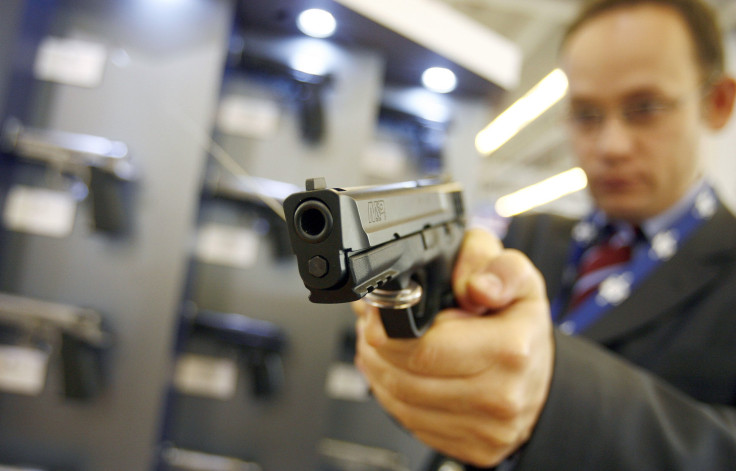SEC Alleges US Gunmaker Smith & Wesson Paid Pakistani Cops Bribe In Guns, A Violation Of Foreign Corrupt Practices Act

A Pakistani police department received a cache of guns from U.S. gun manufacturer Smith & Wesson in return for a deal to sell hundreds of pistols to cops in the South Asian country, one of numerous attempts to bribe officials in developing economies, U.S. regulatory officials said on Monday. The U.S. Foreign Corrupt Practices Act, or FCPA, prohibits companies from bribing officials to make sales even if it is common practice to do so in some countries.
"This is a wake-up call for small and medium-sized businesses that want to enter high-risk markets,” said Kara Brockmeyer, head of the unit that enforces the FCPA, in announcing a $2 million fine against the Springfield, Massachusetts, manufacturer of ammunition, handguns and rifles for civilian, law enforcement and military uses.
Smith & Wesson Holding Corp. (NASDAQ:SWHC) did not return a call for comment but the SEC said the 162-year-old company agreed to pay the fine, which includes giving the federal government the $107,852 in profit it made in the deal with the Pakistani authorities in 2008. In that deal, Smith & Wesson gave the Pakistani police $11,000 worth of guns in return for permission to sell 548 guns to the department.
The SEC also said the 162-year-old company attempted similar deals in Indonesia, Nepal, Turkey and Bangladesh. In 2009, the company attempted to win a contract with Indonesian police by paying a third party with the understanding the money would be channeled to key people authorized to approve weapons purchases for local security forces.
The company said in its latest financial earnings report last month it was the subject of a U.S. Department of Justice investigation into FCPA violations as far back as 2010, the same year the SEC informed the company it was being investigated for “any violations of the federal securities law.”
“We are cooperating fully with the SEC in this matter and have undertaken a comprehensive review of company policies and procedures,” the company said in the filing.
Smith & Wesson has seen its international sales shrink from 4 percent in total sales in 2012 to 3 percent last year. Smith & Wesson reported $626.6 million in sales and $89.3 million in profit last year, up from $357.9 million in sales and $32.5 million in profit in 2010. The company’s share price was down 0.48 percent to $13.60 in afternoon trading in New York. It has gained nearly 1 percent since the start of the year and about 109 percent since 2009.
In 2009, PBS Frontline looked at the practice of international bribery. In it, critics of the FCPA argue the law puts U.S. companies at a disadvantage because other countries, such as the U.K., allow companies to provide gifts to government officials in return for business.
© Copyright IBTimes 2025. All rights reserved.





















